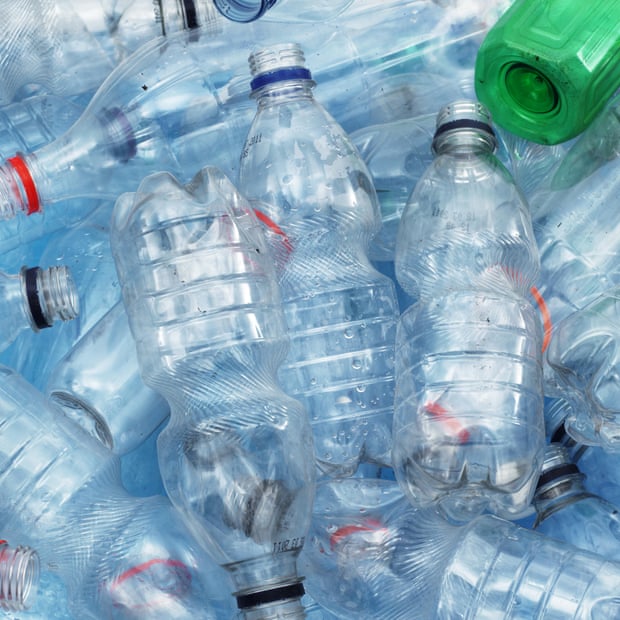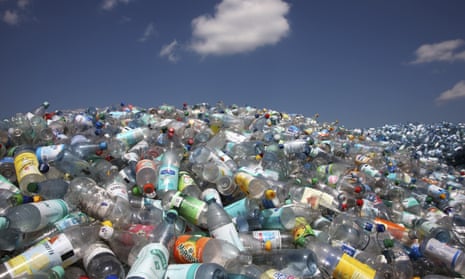Bans around the world on single use plastic items such as carrier bags will dent growth in oil demand over the next two decades, according to BP.
However, the UK-headquartered oil and gas firm said it still expects the global hunger for crude to grow for years and not peak until the late 2030s.
Quick GuidePlastics and our throwaway society
Show

Why is plastic being demonised?
Since the 1950s, 8.3bn tonnes of plastic has been produced. Plastic is seen as a versatile, indispensable product, but the environmental impact is becoming more stark. Plastic is now so pervasive that recycling systems cannot keep up and the leakage into the environment is such that by 2050 plastic in the ocean will outweigh fish. In 2017 scientists found plastic fibres in tap water, and plastic has been found in the stomachs of sea creatures in the deepest part of the ocean. Most plastic waste ends up in landfill sites or leaks into the natural environment, where it is causing huge damage to eco-systems on land and sea, creating near permanent contamination. According to academics in the United States, by 2015, of all the plastic waste generated since the 1950s, only 9% has been recycled, with 12% incinerated and 79% accumulated in landfill sites or the environment.
Why are the supermarkets under fire?
Producers of plastic include retailers, drinks companies and supermarkets. Supermarkets create more than half of the plastic waste in the household stream in the UK. But they refuse to reveal how much they put on to the streets and how much they pay towards recycling it. Supermarkets are under pressure to reduce their plastic packaging and campaigners argue they have the power to turn off the tap. Much of the packaging they sell to consumers is not recyclable: plastic film, black plastic trays, sleeves on drinks bottles and some coloured plastic. The Recycling Association and other experts believe supermarkets could do much more to make packaging 100% recyclable and reduce the use of plastic.
Who pays to clean up the waste?
The taxpayer, overwhelmingly. UK producers and retailers pay among the lowest towards recycling and dealing with their waste in Europe. In other countries, the “polluter” is forced to pay much more. In France, a sliding system of charges means those who put more non- recyclable material on the market pay more.
What can shoppers do to help?
Supermarkets are under pressure, not least from the prime minister, to create plastic-free aisles. A growing number of zero-waste shops are springing up and consumers are being encouraged to ask for products to be sold without plastic.
Sandra Laville
Spencer Dale, the group’s chief economist, said: “Just around the world you see increasing awareness of the environmental damage associated with plastics and different types of packaging of one form of another.
“If you live in the UK that’s clearly been an issue, but it’s not just a UK-specific thing; you see it worldwide, for example China has changed some of its policies.”
Theresa May has branded plastic waste an environmental scourge, and MPs have called for charges on plastic bags to be extended to disposable coffee cups.
Dale predicted such measures around the world could mean 2m barrels per day lower oil demand growth by 2040.
But he said single use plastics were only about 15% of all non-combusted oil, which is used for petrochemicals, an industry that BP expects to be a big driver of global growth in crude demand.
The company’s energy outlook report, published on Tuesday, forecasts demand peaking at about 110m barrels per day between 2035 and 2040, up from around 97mb/d today. Much of the growth comes from rising prosperity in the developing world.
But Dale said his position was that “nobody knows when it’s going to peak because small changes can shift it by five to 10 years”.
BP envisages demand plateauing rather than peaking and suddenly declining. Other experts and oil companies see demand peaking much earlier as governments’ climate change policies and new technologies begin to bite; for instance, a Fitch report (pdf) says demand could peak in 2030 because of electric vehicles.
BP also looked at the impact of a more stringent and global version of the bans on petrol and diesel cars that governments such as those in France and the UK have pledged by 2040 and that China is considering.
Even with such a strong measure, the modelled effect would be limited on oil demand and emissions. The former would drop by 10mb/d, which is significant but not disastrous for oil firms if BP’s prediction of 110mb/d of demand comes to pass.
Emissions would be lower than without a ban, but still grow 7% by 2040 because of more vehicles on the road, a disastrous increase for meeting climate change goals.
BP has almost doubled the amount of electric cars it expects in 2035 globally, up from 100m in last year’s outlook to 180m now. By 2040, 320m of the world’s 2bn cars will be electric, the firm thinks.
But the company believes the advent of driverless cars, which are expected to overwhelmingly be electric, means battery-powered cars will be used more intensely than conventional ones, offsetting some of the emissions cuts they promise.
BP also believes if there were more electric cars than expected, there would be fewer efficient combustion engine cars as a result.
Asked what impact electric cars would have on curbing oil demand, Dale said: “Almost nothing.”
The economist said one of the big surprises of the past year had been the falling cost of renewables, and continued strong government policy support for them.
“Massively surprised by renewables again. We revised up renewables again,” he said. The amount of power expected from renewable sources such as solar and wind is now expected to be 8 terawatt hours in 2035, up from the 5tWh predicted three years ago, and is the fifth year to be revised upward by BP.
Critics noted that every year since the company’s energy outlook was first published in 2011, it has forecast a slowing of renewables growth, only to be proved wrong every time.
Dale said the impact of the US leaving the Paris climate agreement would be limited on carbon emission reductions, since most cuts are coming elsewhere, but the world was missing the leadership role that the US had played at climate talks under Barack Obama.

Comments (…)
Sign in or create your Guardian account to join the discussion